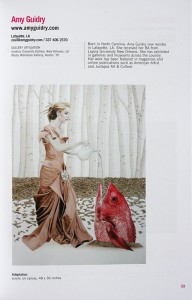Awhile back I wrote about a potential scam, which then got me into some hot water. I do feel, however, that it is important to discuss this issue since scams seem to run rampant among the art community. (Do emails from Nigeria ring a bell?) To be clear, I am not talking about art competitions that don’t lead to overnight success. I’m talking about competitions that are dead-ends with someone looking to run off with your money. These are the real scams. Often these are run by people with shady financial backgrounds (bankrupt, etc.), but this is not always easy to find on the internet. So here are some common traits I’ve come across:
First, the organization that’s running the competition is probably one you’ve never heard of before. If you do a search for their name on the internet, you may come up with nothing. If other artists have had success with said competition, they post it on the internet via blogs, press articles, resumes, etc. There will be a trail.
If the organization contacts you directly via email, and again, you’ve never heard of them, then where did they get your contact information? This is not to say that every email you get from a stranger is a scam, but usually the email should at least be directly written to you. If it is a mass emailing, then clearly they are just shooting arrows in hopes of hitting a target.
Who are the jurors? Often scams do not give names of jurors. They can certainly make up jurors as well, so that is why I highly recommend you do your research.
One of the more flagrant traits of an art competition scam is the deadline extension. I’ve seen many legit competitions extend a deadline (for example, the original deadline falls on a holiday) but usually the reason for the extension is stated in such a case. And, not to mention, this is usually done by a competition that is well-recognized in the first place. The ones to worry about are the ones that nobody’s ever heard of and they extend their deadline…again…and again…and again. Keep tabs on their websites and you’ll find this to be true.
Lastly, if the prize money is outlandishly big, but their company looks cheap, then it’s probably a scam. Successful arts organizations that have money to dole out, also have money to hire a great marketing team. Their websites will be top-notch, their logo is well-designed, and there are no grammatical errors on their marketing materials. One of the best examples I discovered was a website with overlapping text and photos. You have 10 grand to give me but you don’t have the money to hire a decent web designer? Oh, and their photos should be of actual events and of their actual gallery, etc. If all they have is stock photography (or NO photography), then something is fishy.
